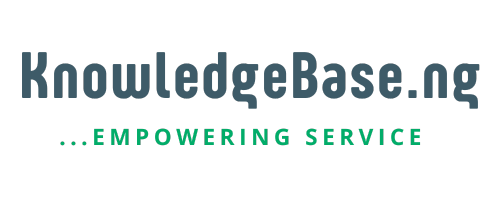Effective time management is crucial for public servants who often juggle multiple responsibilities and face demanding workloads. By implementing proven time management techniques, public servants can enhance productivity, meet deadlines, and maintain a healthy work-life balance. In this article, we will explore some of the top time management techniques specifically tailored for public servants, helping them make the most of their time and achieve optimal results in their professional roles.
- Prioritize Tasks: Prioritization is key to effective time management. Begin each day by identifying and prioritizing tasks based on their urgency and importance. Use techniques like Eisenhower Matrix or ABC analysis to categorize tasks into “urgent and important,” “important but not urgent,” “urgent but not important,” and “not urgent or important.” Focus your energy on high-priority tasks to maximize productivity and ensure critical deadlines are met.
- Set Clear Goals: Establish clear goals for each day, week, and month. Setting SMART (Specific, Measurable, Achievable, Relevant, Time-bound) goals helps maintain focus and provides a sense of direction. Break down long-term goals into smaller, manageable tasks, and track progress regularly. This approach allows public servants to stay motivated, maintain momentum, and achieve their desired outcomes effectively.
- Time Blocking: Time blocking involves allocating specific time slots for different tasks or activities. By dedicating uninterrupted blocks of time to specific projects or responsibilities, public servants can minimize distractions and improve concentration. Use calendar tools or productivity apps to create time blocks for essential tasks, meetings, and personal activities. Avoid multitasking and commit fully to each scheduled activity, maximizing efficiency and reducing the likelihood of burnout.
- Delegate and Collaborate: Public servants often work in teams or collaborate with colleagues. Effective delegation and collaboration can optimize time management. Identify tasks that can be delegated to competent team members, leveraging their skills and capabilities. Establish open lines of communication, share responsibilities, and foster a collaborative work environment. By leveraging the collective strengths of the team, public servants can streamline work processes, save time, and achieve better outcomes.
- Practice the 80/20 Rule: The Pareto Principle, also known as the 80/20 rule, suggests that 80% of the results come from 20% of the efforts. Identify the most critical tasks that yield the highest impact and prioritize them accordingly. Focus your energy and time on high-value activities that align with organizational goals and deliver significant outcomes. By concentrating on the tasks that truly matter, public servants can optimize their productivity and make the most of their working hours.
- Minimize Time Wasters: Public servants must be mindful of time-wasting activities that hinder productivity. Identify common distractions like excessive email checking, social media browsing, or unnecessary meetings. Set boundaries and establish dedicated periods for handling emails or engaging in non-work-related activities. Use productivity tools to block distracting websites or set timers to limit the time spent on non-essential tasks. By minimizing time wasters, public servants can reclaim valuable time and allocate it to more meaningful and productive work.
- Regular Breaks and Self-Care: Taking regular breaks is essential for maintaining focus and productivity. Public servants should prioritize self-care to avoid burnout and maintain a healthy work-life balance. Incorporate short breaks throughout the day to recharge and rejuvenate. Engage in activities like stretching, deep breathing exercises, or short walks to refresh the mind. Additionally, allocate time for hobbies, exercise, and quality time with family and friends to promote overall well-being and enhance productivity in the long run.
Effective time management is a critical skill for public servants to fulfill their responsibilities efficiently and achieve their professional goals. By implementing top time management techniques, such as prioritizing tasks, setting clear goals, time blocking, delegating and collaborating, practicing the 80/20 rule, minimizing time wasters, and prioritizing self-care, public servants can optimize their productivity, maintain a healthy work-life balance, and contribute effectively to their organizations and the public they serve. Embrace these techniques, make them part of your daily routine, and witness the positive impact on your productivity and overall job satisfaction.

